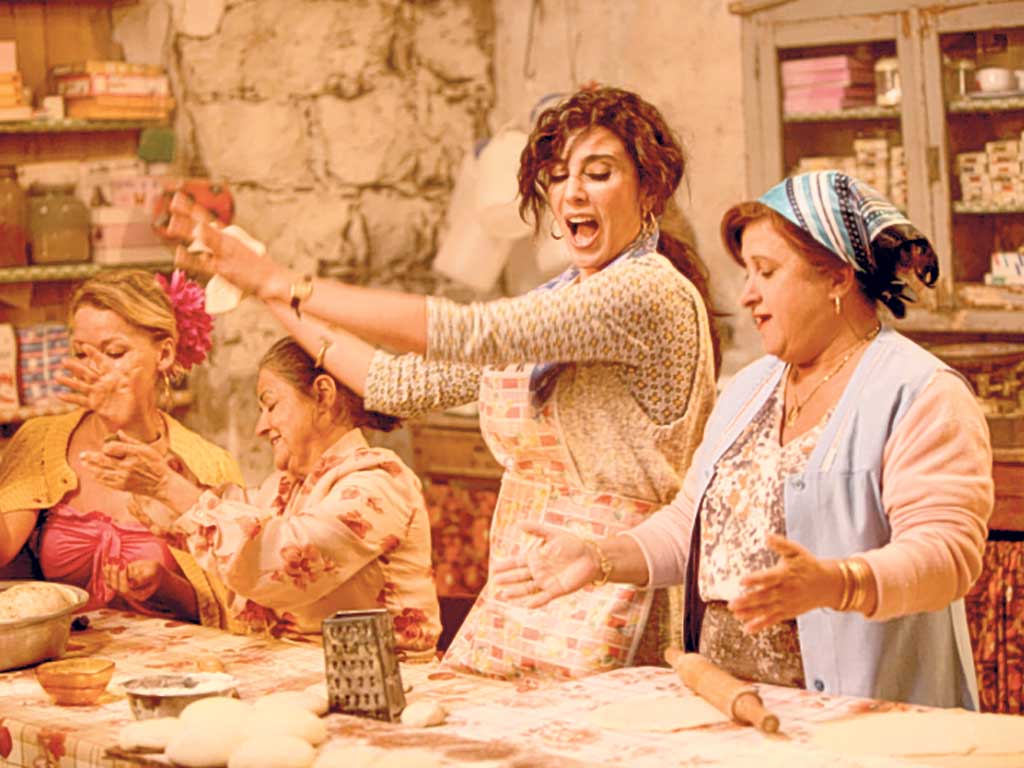'Poster girl' says new film was a secret mission
Lebanese movie star Nadine Labaki follows her hit comedy Caramel with a tale of war and peace. By Kaleem Aftab

Your support helps us to tell the story
From reproductive rights to climate change to Big Tech, The Independent is on the ground when the story is developing. Whether it's investigating the financials of Elon Musk's pro-Trump PAC or producing our latest documentary, 'The A Word', which shines a light on the American women fighting for reproductive rights, we know how important it is to parse out the facts from the messaging.
At such a critical moment in US history, we need reporters on the ground. Your donation allows us to keep sending journalists to speak to both sides of the story.
The Independent is trusted by Americans across the entire political spectrum. And unlike many other quality news outlets, we choose not to lock Americans out of our reporting and analysis with paywalls. We believe quality journalism should be available to everyone, paid for by those who can afford it.
Your support makes all the difference.The sophomore film can often be as disappointing as the difficult second album, but Nadine Labaki is taking it all in her stride. The Lebanese writer, director and actress, 38, was named Middle East Filmmaker of the Year in 2007 for her debut film, Caramel. A touching comedy set in a Beirut hairdressing salon, it revolved around the lives of five women, aged between 20 and 60, delicately trying to balance cultural mores with their more carnal desires. Unusually for films from the region, no mention was made of border disputes and war. Labaki took the lead role and won rave reviews for her work on both sides of the camera.
Now she's back, starring in her follow-up, Where Do We Go Now?, which takes the soap-opera feel of Caramel and turns it into Greek tragedy, including the odd choral song. The film is set in a fictional village in an unnamed land where Christians and Muslims have traditionally lived side-by-side until news of regional disputes raises tensions. As fighting breaks out, the women who regularly meet in a café (Labaki plays its owner) decide that they must stop war by any means possible, including importing a group of Ukrainian strippers to take their husbands' minds off fighting.
Despite the subject matter and frequent violence, Labaki has managed to preserve the bittersweet comic feel of her debut. Populist and feel-good, Where Do We Go Now? has already picked up the People's Choice Award at the Toronto Film Festival. The last three winners of the award were The King's Speech, Precious and Slumdog Millionaire.
It's a modern-day take on Lysistrata – Aristophanes's tale of women withholding sex from their men until they agree to peace – but Labaki says the link is incidental: "It was only after I finished that I made the connection with Lysistrata. This story is something personal. In Lebanon you are always on the verge of another civil war. The idea came in 2010 [during the Israeli bombing of Lebanon], when events led to people going on to the street and killing. I was pregnant at the time, and I thought, 'If my son was a teenager today, how far would I go to stop him doing what others are doing?'"
Making the film without inflaming religious tensions required military levels of secrecy. "Everyone wanted to know what the film was about," she says. "I didn't give the script to anyone; even the actors would only discover what they were doing on the actual day they were shooting because I didn't want things to be misinterpreted."
Labaki has become a poster girl for film-making, a position which has raised eyebrows in a region where voices for women remain a fraught issue. "I'm not saying we are in a perfect situation right now, but women are expressing themselves more and more freely," she argues. "Lebanon is a free country and it's not too strict on women. We cannot deny we have a lot of issues and taboos to deal with. But I've never had any difficulty in my job because I'm a woman."
Does she feel a certain weight and expectation as a Middle Eastern film-maker? "I hope it can change something, that's why I'm making this type of film. The ridiculousness of the situation, as a film-maker living in this part of the world, is that you think you have a mission."
The changing face of the region has been brought into sharp focus by the events of the Arab Spring; Labaki is uncertain as to how events will turn out. "As soon as we start feeling hope, you hear of conflicts in Egypt between Christians and Muslims. It's sort of a desperate situation. That's why the film asks the question – where do we go now?"
'Where Do We Go Now?' is released on 22 June
Join our commenting forum
Join thought-provoking conversations, follow other Independent readers and see their replies
27Comments